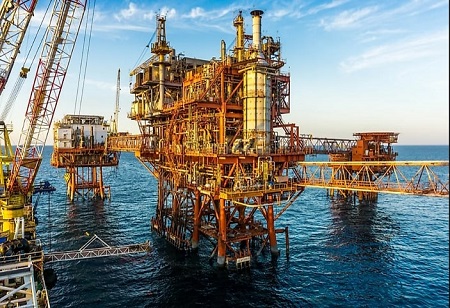
From a business perspective, vessels are the most feasible way of transporting goods across the globe and are chosen by several industries. In ancient times, ships primarily prioritized coal as the fuel for operations, but now things have changed, and diesel engines have made it more mainstream.
Ideally, in long travels, it takes days to reach the destination and goods are distributed to the recipient. Thus, the fuel consumption is high, and practically no other technologies can be opted for and don’t even work flawlessly as well as the existing ones.
As per the United Nations Conference on Trade and Development, around 80% of the world's trade by volume and 70% by number are shipped through waterways. Of that volume, maritime trade consists of 60% through Asia, with the South China Sea accounting for approximately one-third of shipping worldwide. Moreover, every year, around 11 billion tons of commodities are transported by ship. Just imagine the amount of fossil fuel consumption used in a year; it is in abundance.
Since the world trade is increasing every year, the profit turnover may undoubtedly be high, and it is a great opportunity for organizations to take a step forward and invest in the shipping companies. The probability of incurring losses in the shipping business may be comparatively lower, and it could be worthwhile to fund it and get the benefit out of it.
Miscellaneous Fields
Fossil fuels are mostly known for their combustion prowess, but they are often overlooked that they are used in various fields such as medicine, cosmetics and many more. Fossil fuels have penetrated virtually everywhere and are integral to the economy. They are heavily depended upon by the developing countries to provide their day to day needs. Shipping might be the biggest consumer, but it is not the only one.
For example, a lot of organic pharmaceutical drugs are synthesized using petroleum as base, antiseptics; essential oils are also derived from this. The uses of fossil fuels are often overlooked as the masses are only aware of their locomotive uses.
Fossil Fuels fueling Economies

Let us take a scenario where a firm manufactures tons of products and wants to send them to a nation. There are several ways in which the transportation can be performed. Options are available for means of transportation. However, the majority of the companies think about the practical options of transporting goods, considering profit as their prime focus. The ideal one is to approach freight forwarders who deal with bulk shipments and have them take it forward. The only drawback could be the time duration, yes! It may be a time consuming process but an optimal choice for organization for transportation and the risk factor is way lesser.
On the contrary, since the global demand for products is high, it wouldn’t be one firm dispatching the goods to the outside world; instead, there are numerous organizations dealing in bulk shipment to satisfy the needs of the end users. Also, trade is something that impacts the economy and boosts the nation’s GDP.
To bring all this into reality, fuel is the key, and hence it is an integral part of movement.
An Indirect contributor

So far, we have pointed out the importance of fossil fuels for trade. There are also certain companies that pave the way for converting crude oil into derivatives such as coal, petrol, diesel, and natural gas. They distribute it to the nations on demand, and as a result of that, global trade becomes way easier, which finally leads to customer satisfaction.
Actually, the conversion process is a bit complicated, but the oil refineries play a crucial role in streamlining every set of activities and sending them to the users accordingly. Petroleum companies, the backbone of trade, indirectly benefit from the contributions of fossil fuels.
All in all, though fuels are paramount for trade operations, it is imperative to use it wisely and shouldn’t be overly reliant on it. it is a said that the resources will become empty one day, and research and development have to be performed to come up with an energy source to take the place of fossil fuels. As of now, the world economy is performing with this, so we must develop an alternate source and gradually transition without compromising the economy.
We use cookies to ensure you get the best experience on our website. Read more...